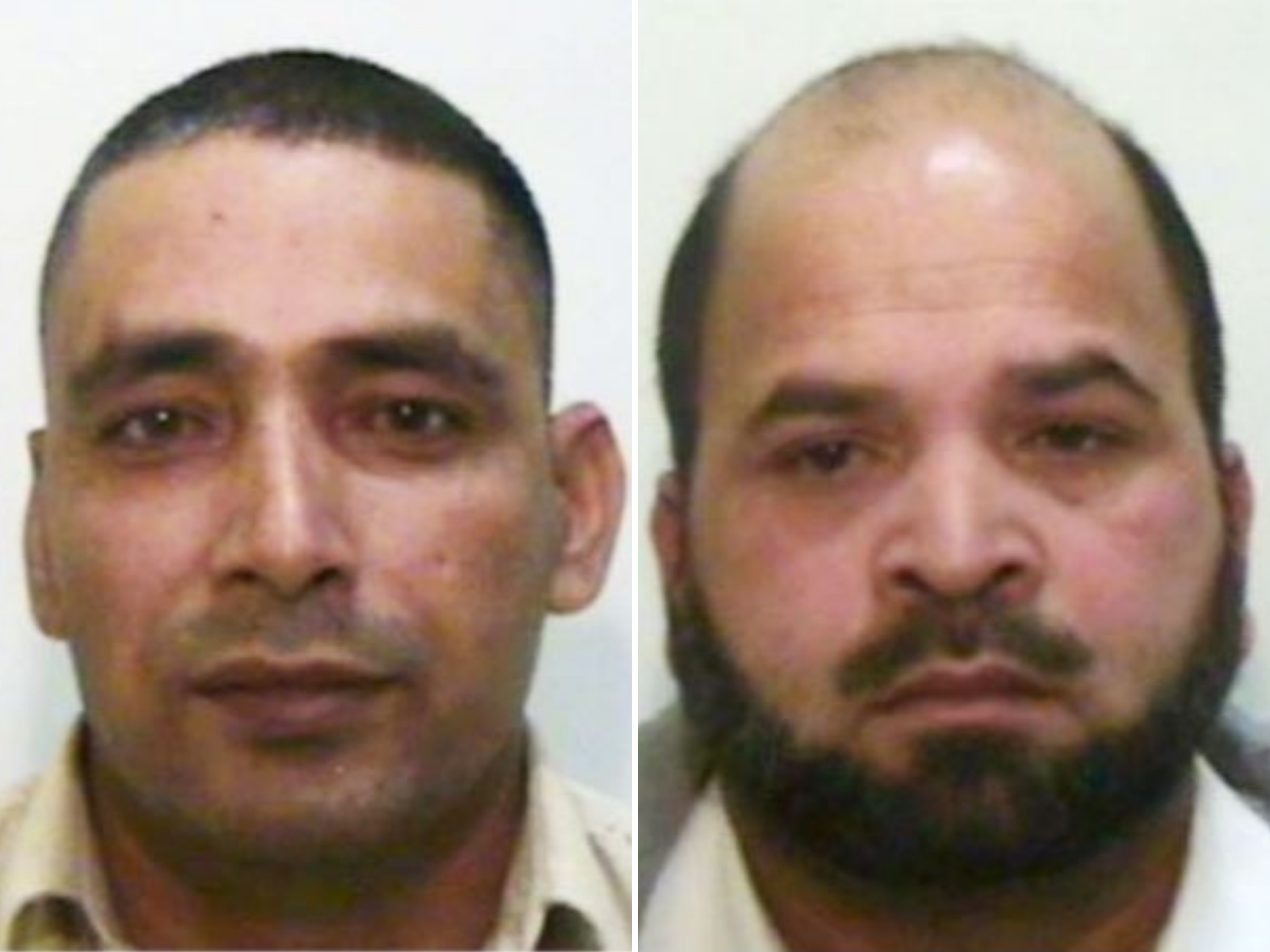‘I have no rights in this country’: Rochdale groomer complains about treatment in UK at deportation tribunal
The tribunal is intended to determine whether the decision to deport two men convicted of grooming and trafficking young girls is lawful

Your support helps us to tell the story
From reproductive rights to climate change to Big Tech, The Independent is on the ground when the story is developing. Whether it's investigating the financials of Elon Musk's pro-Trump PAC or producing our latest documentary, 'The A Word', which shines a light on the American women fighting for reproductive rights, we know how important it is to parse out the facts from the messaging.
At such a critical moment in US history, we need reporters on the ground. Your donation allows us to keep sending journalists to speak to both sides of the story.
The Independent is trusted by Americans across the entire political spectrum. And unlike many other quality news outlets, we choose not to lock Americans out of our reporting and analysis with paywalls. We believe quality journalism should be available to everyone, paid for by those who can afford it.
Your support makes all the difference.One of the men who was involved in the infamous Rochdale grooming gang has complained about his treatment in the UK at a deportation hearing.
At an Immigration Tribunal on Monday, Adil Khan, 51, told the court that he had been deprived of his rights as an individual in the UK.
He and Qari Abdul Rauf, 52, have been told that they will be sent back to Pakistan after having been convicted for a number of serious sex offences against young girls.
Police said as many as 47 girls were groomed by the Rochdale gang, of which Khan and Rauf were members alongside seven other men. The group targeted girls as young as 12, plying them with alcohol and drugs before trafficking and gang raping them.
Khan was sentenced to eight years in prison in 2012 for his offences, including impregnating a 13-year-old girl and trafficking a 15-year-old. He was released on licence four years later.
Rauf was sentenced to six years imprisonment in 2012, also for trafficking a 15-year-old girl, and released in November 2014 after serving two-and-a-half years.
Khan told the court that the Home Office had taken his driving licence away from him and said that he was “surviving” only on his son’s benefits.
Speaking through a Mirpuri translator he said: “I cannot exercise any rights in this country as an individual. I cannot do anything for my family, I’m just surviving on my son’s benefits.
“I cannot take my son to school if it is raining, we cannot afford a taxi.
“The police informed me about a month ago that they have cancelled my driver’s licence, according to Home Office instructions.”
Judge Nehar Bird, chairing the deportation tribunal, made it clear that the court was not currently interested in his complaints.
“Mr Khan, this hearing is to decide how to proceed forward in the hearing of your appeal. It is not here to decide whether you should be given a driving licence, whether you should be given money, whether you should be sent to detention. That’s not the purpose of the hearing,” Judge Bird said.
“This tribunal is here to decide whether the Home Office decision to deport you back to Pakistan is right or wrong, in law,” the judge added.
The two men are currently appealing a decision to deport them, following their six-year legal battle in which they lost the right to remain in the UK, despite holding dual citizenship.
The ongoing tribunal has heard that their appeal is centred on two elements – statelessness and the alleged contravention of their human rights.
Both men were issued certificates by the government of Pakistan, which they suggest represents their legal renunciation of their Pakistani nationality. If proven valid, deporting the men could effectively make them stateless, which is illegal, making the action unlawful.
However, the documents in question were issued in September 2018, after the two men had been deprived of their UK citizenship. The validity and legality of the documents is also uncertain under Pakistani law, and expert advice has been sought by Khan’s lawyers.
The second ground for appeal concerns the men’s rights under Article 8 of the European Convention on Human Rights, arising out of their individual circumstances and relating to their private and family life.
A hearing for a further case review will take place on 29 November, ahead of the main hearing which will likely take place sometime next year – some 10 years after the men were convicted.
As both men held dual UK-Pakistan citizenship, they were in theory liable to be deprived of their UK citizenship and deported, after Theresa May, then-home secretary, said that their deportation would be “conducive to the public good”.
Join our commenting forum
Join thought-provoking conversations, follow other Independent readers and see their replies
Comments